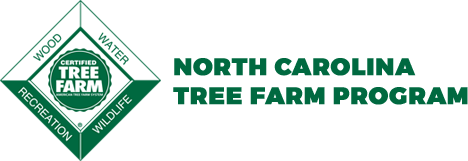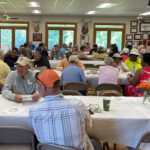 |
The Wake County Wildlife Club in Durham hosted the N.C. Tree Farm Program’s 2024 Annual Meeting. The event featured presentations on prescribed burn associations, hunter safety, landowner liability, hunt clubs, using commercial timber management practices to advance your conservation goals, and managing mixed stands, hardwoods and visual buffers. View the detailed agenda. |
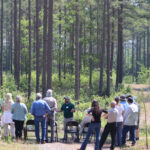 |
Montgomery Community College’s Forest Management Technology Program in Troy hosted the N.C. Tree Farm Program 2023 Annual Meeting. The event featured a presentation on the use of drones in forest management and a tour of the college’s 120-acre forest where they train the next generation of forestry professionals. Lunch and awards presentations followed the tour. View the detailed agenda here. |
 |
Cherokee Scout Reservation in Yanceyville hosted the N.C. Tree Farm Program’s 2022 Annual Meeting. The forestry tour focused on how the Cherokee Scout Reservation’s 15 years of active management has restored high-graded forests and promoted oak restoration on more than 400 acres. View the detailed agenda. |
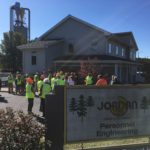 |
The N.C. Tree Farm Program held its 2019 Annual Meeting at Jordan Lumber and Supply, Inc., in Mt. Gilead on October 17. The event included a tour of Jordan’s sawmill from the woodyard to the finished product, and a tour of the company’s timberlands focusing on the management practices that have increased their per-acre yield by 200 percent over the last 20 years. Lunch and awards presentations followed the mill and timberlands tours. View the detailed agenda here. |
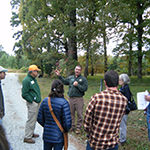 |
Laura and Maurice Hull hosted the N.C. Tree Farm Program’s 2018 Annual Meeting at their Caswell County Tree Farm, Waukegan Farms. During the field tour, Tree Farmers learned about management practices to transform a neglected property to a healthy and productive Tree Farm and saw live demonstrations portable sawmill and pond stocking. A detailed agenda is available here.
|
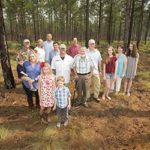 |
The N.C. Tree Farm Program partnered with the N.C. Wildlife Resources Commission and N.C. Cooperative Extension to explore ways of integrating wildlife habitat into Tree Farmers’ land management goals and objectives. The program included a tour of McKay Farms, an intensively managed Tree Farm whose owners have successfully implemented a multiple-resource management program balancing row crop production timber management and wildlife habitat enhancement. A detailed agenda is available here. |
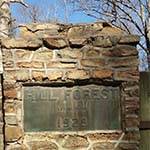 |
The N.C. Tree Farm Program held its annual meeting at the 2,450-acre G.W. Hill Demonstration Forest in Durham County. A tour of the property included
- A demonstration of the results of various management treatments, including precommercial thinning, burning and competition control
- Bird-banding and the effects of forest management on songbird populations
- Information on the impact of Best Management Practices during harvest operations on water quality.
|
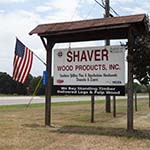 |
The 2015 Annual Meeting in Cleveland offered N.C. Tree Farmers a unique opportunity to visit a Tree Farm and sawmill all at one location. The event included a tour of Jimbo Shaver’s 300-acre Tree Farm and Shaver Wood Products, one of the few mills in the state that processes both hardwood and pine logs. The tour focused on growing timber for the available markets. A detailed agenda is available here. |
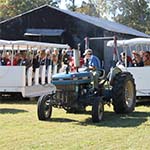 |
R.L. Johnson Farm, which is “the most intact and expansive agricultural complex in Harnett County” according to the National Historic Register, was the site of the 2014 Annual Meeting. The farm tour offered a glimpse of forestry practices over the past 225+ years including naval stores production, hydro-mulching, intensive forest and wildlife management, the use of prescribed fire, managing invasive species and a look at a 1918 country store. A detailed agenda is available here. |
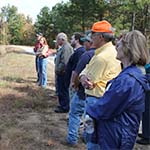 |
Dwight and Judy Batts hosted the 2013 Annual Meeting at their Tree Farm in Macclesfield. Tour topics included:
- Preserving the Past: special sites, easements, artifacts, old buildings
- Understory Management: mowing, thinning, herbicides, prescribed fire, invasive and competitive species, wildlife benefits, cost-share programs
- Pond and Wetland Management: pond development, water quality, invasive species, retention and drainage methods, dams, wetlands
- Timber Management: management plans, site prep, planting density, seedling selection, precommercial and commercial thinning, final harvest, logging contracts. A detailed agenda is available here.
|










